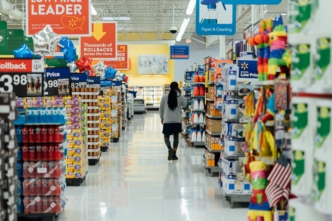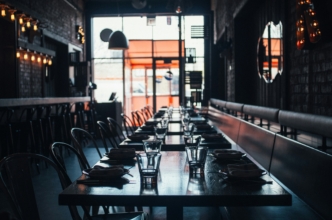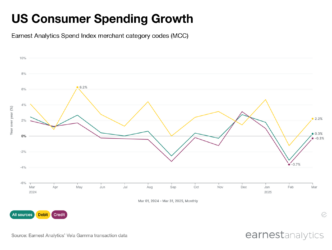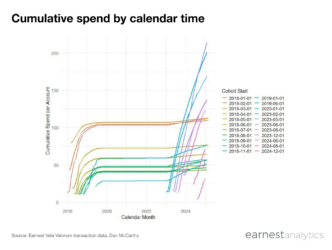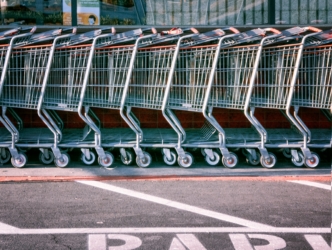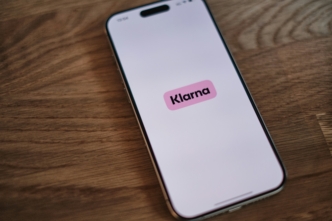Amazon Partnership Delivers for Kohl’s
If You Can’t Beat ‘Em
In October 2017, department store Kohl’s did what many traditional retailers would consider unthinkable: it partnered with Amazon. In 82 stores across Los Angeles and Chicago, consumers were presented with the option to make free in-store returns of packages they had ordered from the online giant. Returning an order with Amazon was already fairly straightforward, but this move by Kohl’s highlights and addresses the less appealing aspects of that process, namely, having to go to the post office or UPS or waiting for a mail carrier to make the rounds at your home.
The real question is, what’s in it for Kohl’s?
Moving with the Times
The overall decline in conventional retail sales is no secret, and like other big box stores, Kohl’s is doing what it can to stay relevant. Richard Schepp, the company’s Chief Administrative Officer, described the partnership in this way:
“This is a great example of how Kohl’s and Amazon are leveraging each other’s strengths — the power of Kohl’s store portfolio and omnichannel capabilities combined with the power of Amazon’s reach and loyal customer base.”
The “loyal customer base” Schepp refers to is comprised largely of affluent millennials, a highly coveted demographic that Kohl’s is eager to tap into. The idea is that once they’ve made their returns inside the store they may stick around to do some good old-fashioned, in-person shopping.
In order to understand if this partnership has been successful for Kohl’s, we looked at two questions:
1. Are Kohl’s customers utilizing this service?
2. Has the partnership led to an increase in sales, traffic or new customers for Kohl’s?
Increased Returns in Chicago
We looked at the percent of Kohl’s customers who also made an Amazon return within 7 days of their Kohl’s purchase (3 days before or after). We compared two geographies — Chicago (where almost all Kohl’s stores are participating in the initiative) and the rest of the U.S. (excluding Chicago and Los Angeles, where some stores are participating in the program).

Between January 2015 and November 2017, the percentages were more or less the same, but starting in early 2018, a few months after the inception of the Amazon partnership, there was a sharp uptick in Chicago returns. By the summer of 2018, we see that 7–8% of Kohl’s customers in Chicago were making Amazon returns, compared to 3% in the rest of the U.S. Our data is clearly indicating the service is being used by Kohl’s customers in Chicago — but is it driving more sales?
Returns Translating to Sales
By looking at sales growth from both regions (Chicago vs. Rest of U.S), we see a similar pattern emerge. Chicago region sales growth tracks very closely to the rest of the U.S. until the first quarter of 2018, where revenue growth tops more than 10%, versus 5% for the rest of the U.S.

Additionally, Earnest data shows that Chicago sales, transactions, and customer growth all outpace the same metrics nationwide for 2018. Perhaps most notable is the fact that Kohl’s percentage of new customers — defined as customers that did not shop at Kohl’s in the prior calendar year — is up 9% in 2018, versus 1% for the rest of the U.S., indicating that the Amazon initiative has driven new customers to store locations, accomplishing the partnership’s goal.

Not Stopping at Chicago or Los Angeles (or Amazon)
Likely encouraged by these growth numbers, Kohl’s has expanded the Amazon partnership to include locations in Milwaukee, the city where the original Kohl’s was founded in 1962.
The success of the Kohl’s-Amazon partnership may have catalyzed Kohl’s decision to embark on further partnerships, most recently electing to share excess store space with the everyman gym chain Planet Fitness and German “fresh forward” supermarket Aldi. By leveraging its considerable physical footprint (more than 1,100 stores nationwide), Kohl’s is able to offer these companies ready-made retail (or workout) space. In return, Kohl’s gains a new base of customers who, in finding a quality gym and/or grocery store, are very likely to make repeat visits to those locations. This is a situation where, potentially, everybody wins.



